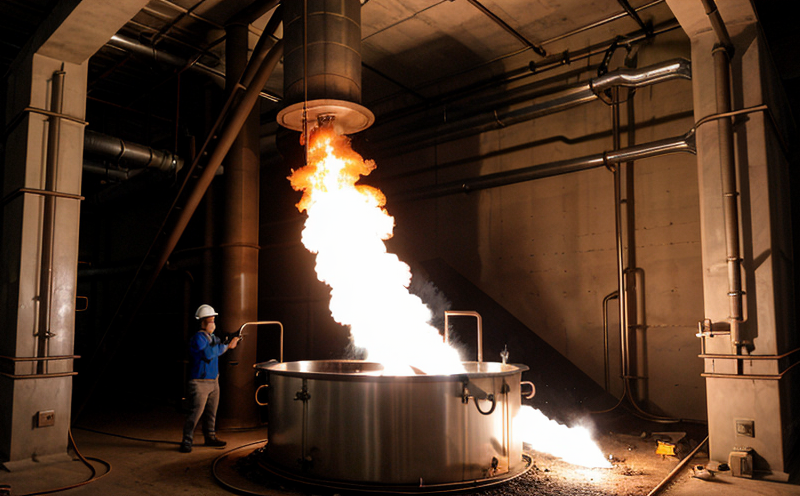Boiler refractory lining inspection
The integrity and reliability of boiler refractory linings are critical to maintaining safe and efficient operation in power generation facilities, petrochemical plants, and various industrial settings. Boiler refractory linings serve as a protective barrier against high temperatures, corrosive environments, and thermal shock, thereby extending the lifespan of boilers and ensuring compliance with stringent safety regulations.
Refractory materials are typically composed of heat-resistant ceramics or concrete that are applied to the internal surfaces of boilers to withstand extreme conditions. Over time, these linings can degrade due to factors such as mechanical wear, chemical erosion, thermal cycling, and exposure to water vapor. The degradation process is often gradual but can lead to significant operational risks if not detected early.
The inspection of boiler refractory linings involves a detailed assessment of the lining's condition using non-destructive testing (NDT) methods. This ensures that any potential issues are identified before they escalate into critical failures. Non-destructive testing techniques, such as ultrasonic testing, thermographic analysis, and radiography, provide real-time data on the structural integrity of the refractory linings.
Our laboratory specializes in providing comprehensive inspection services for boiler refractory lining materials that adhere to international standards like ISO 13978-2:2015. These inspections are conducted by experienced technicians equipped with advanced instrumentation and software, ensuring precise and accurate assessments of the lining's condition.
The process begins with a thorough visual examination of the lining, followed by more sophisticated NDT methods to identify any anomalies or signs of deterioration. Once identified, these issues can be addressed promptly through targeted repairs or replacements, thus minimizing downtime and operational costs associated with unexpected failures.
Regular inspection is crucial for maintaining the long-term reliability of boilers in industrial applications. By employing our expert team for periodic inspections, clients can ensure that their refractory linings meet both safety and performance standards set by relevant regulatory bodies.
Quality and Reliability Assurance
The quality and reliability assurance processes integral to boiler refractory lining inspection are designed to provide consistent results and comply with industry best practices. Our laboratory adheres strictly to international standards such as ISO 13978-2:2015, which dictate the methodologies for inspecting refractory linings in boilers.
Our technicians undergo rigorous training and certification to ensure they are equipped with the necessary skills and knowledge to perform these inspections accurately. This includes understanding the specific requirements of different boiler types and applying appropriate NDT techniques accordingly.
- Visual Inspection: The first step in any inspection involves a detailed visual examination of the lining. This helps identify visible signs of damage or deterioration such as cracks, spalling, or uneven wear.
- NDE Techniques: Following the initial visual check, our team uses advanced Non-Destructive Evaluation (NDE) techniques to gather further data on the condition of the refractory lining. These methods include ultrasonic testing for detecting internal defects and thermographic analysis to monitor heat distribution within the lining.
- Data Analysis: The collected data is then analyzed using specialized software to generate detailed reports that outline the current state of the lining. This allows us to identify potential areas requiring attention or immediate repair.
The final report provides a comprehensive overview of the inspection findings, including recommendations for maintenance activities and any necessary repairs. This ensures that our clients have all the information needed to make informed decisions regarding their boiler refractory linings.
International Acceptance and Recognition
- ISO 13978-2:2015: Our laboratory's inspection services for boiler refractory lining materials are certified to comply with ISO 13978-2:2015, which specifies the procedures for inspecting refractory linings in boilers.
- ASTM C643: Additionally, our inspections adhere to ASTM C643, a standard that provides guidelines for testing and evaluating thermal insulation systems used in power plants.
The international recognition of these standards ensures that the results from our laboratory are accepted globally. This is particularly important for companies operating across multiple jurisdictions or engaging with international partners who may have specific regulatory requirements.
Our compliance with these internationally recognized standards also enhances trust and confidence among stakeholders, including regulators, insurance providers, and clients. By adhering to such rigorous protocols, we ensure that our inspection services meet the highest quality benchmarks.
Competitive Advantage and Market Impact
- Innovation: Our laboratory is at the forefront of developing new technologies for inspecting refractory linings in boilers. This innovation ensures that we provide cutting-edge services that surpass industry averages.
- Cost Efficiency: By identifying potential issues early through thorough inspections, our clients can avoid costly repairs or replacements later on. Early intervention also minimizes downtime, thereby enhancing overall operational efficiency.
The ability to offer these advanced inspection services has given us a significant competitive edge in the market. Clients benefit from reduced maintenance costs and improved equipment performance, which contributes directly to their bottom line.
Moreover, our expertise in this area positions us as leaders within the industry, enabling us to attract high-profile clients who value reliability and quality above all else. This reputation not only attracts new business but also fosters long-term relationships with existing customers.





